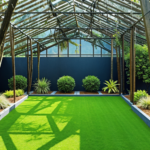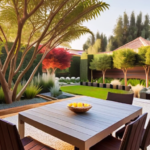The color of your flowers can have a significant impact on the appearance, vibe and atmosphere of your garden, and will largely be determined by your own personal preferences.
RELATED: 40 Amazing Tiffany Blue Flowers For Your Home And Garden (With Pictures)
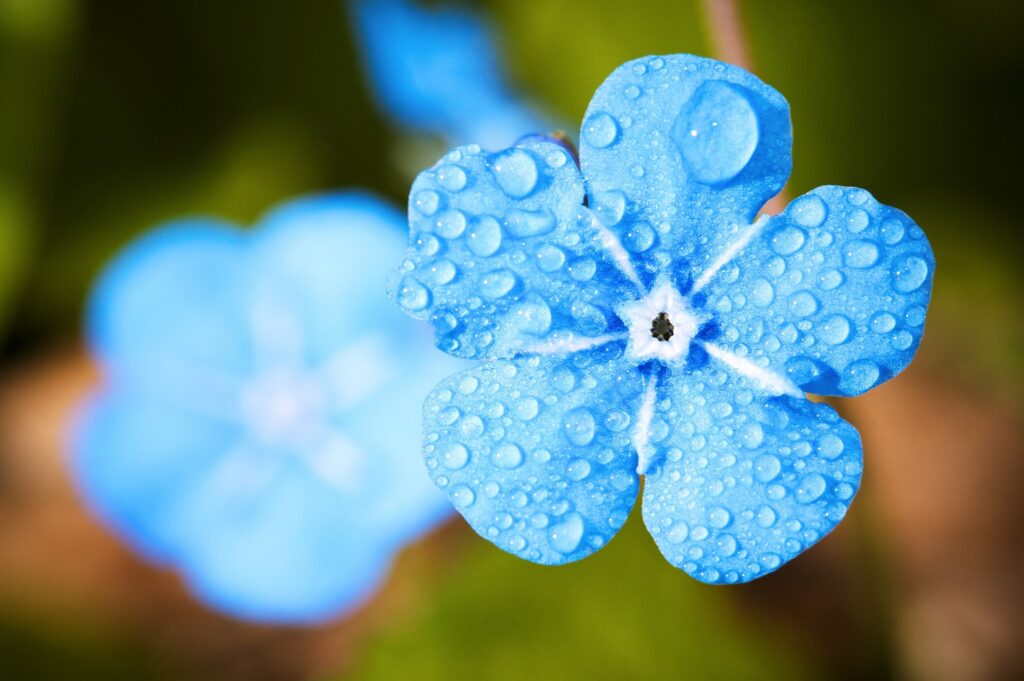
When planting flowers, however, it is also important to ensure that you have a good understanding of growing conditions, areas of shade and sunlight in your garden, and the type of soil that you have – all of these will determine how well specific flowers grow and may prohibit you from specific species and types.
With that said, there is no need to worry about a lack of choice – the natural world boasts a rich array of stunning flowers and plants in all shades of blue – and this includes bright blue aqua, guaranteed to brighten up any space and ensure that your garden is a talking point for all the right reasons.
As an added bonus, brighter flowers tend to be more appealing to birds, butterflies and bees, and so are a perfect option if you are looking to bring a little wildlife to your garden. Wondering just how many aqua flowers there are to choose from? Well, we have everything you need to know!
1. Himalayan Blue Poppy
Botanical name: Meconopsis betonicifolia
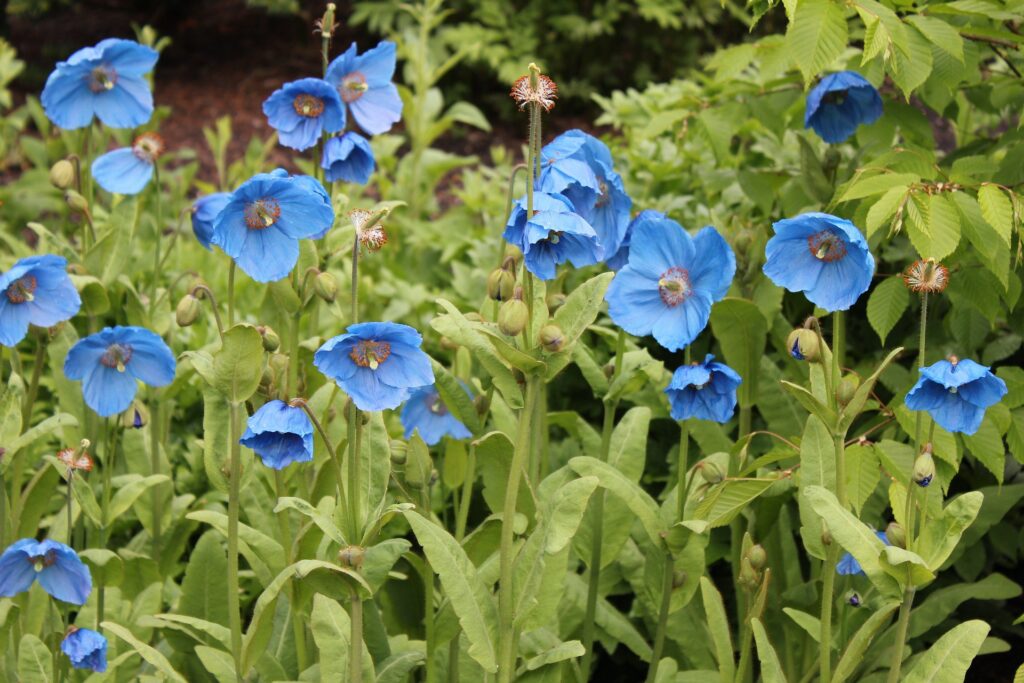
With a rich, delightful aqua, there are plenty of reasons to include the stunning Himalayan Blue Poppy in your garden collection; this is a very popular flower. Just be aware, however, that they can be a little temperamental, and do need looking after to thrive properly and reach their full potential. Keep soil moist and well drained, and ensure that your flowers get at least partial sunlight.
2. Love In Mist
Botanical name: Nigella damascena
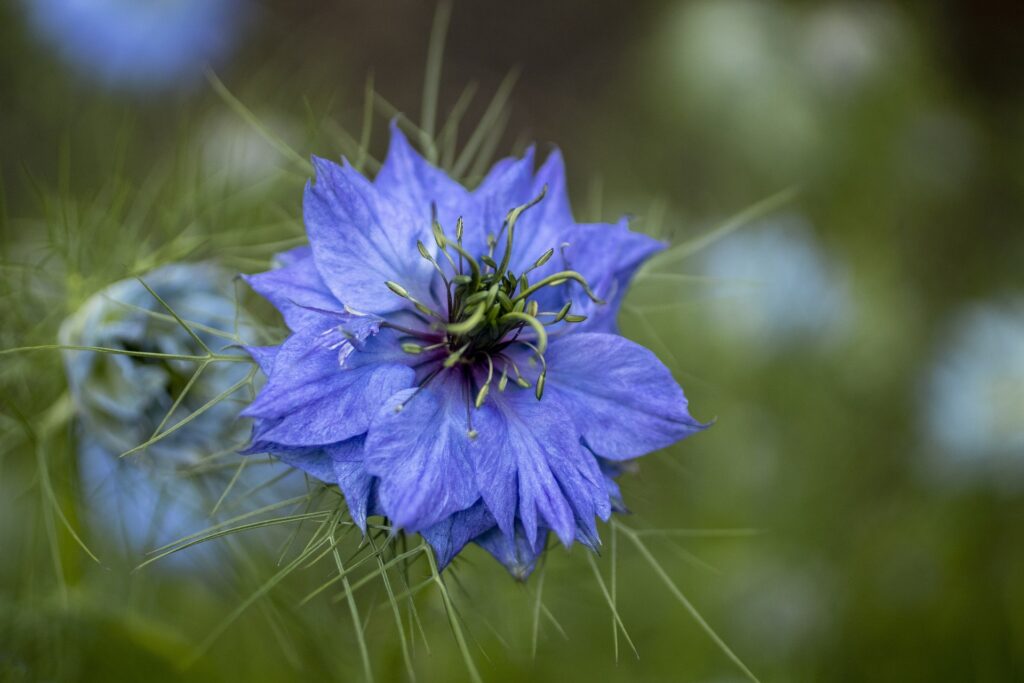
With such a beautiful name, it comes as no surprise that Love in Mist is a popular flower in gardens across the world; the blooms are gentle and delicate, while still offering a cheerful aqua sheen. Adding several of these to your garden will help you to achieve a “mist” of blue – all you need to do is scatter the seeds wherever you wish!
3. Lungwort
Botanical name: Pulmonaria officinalis
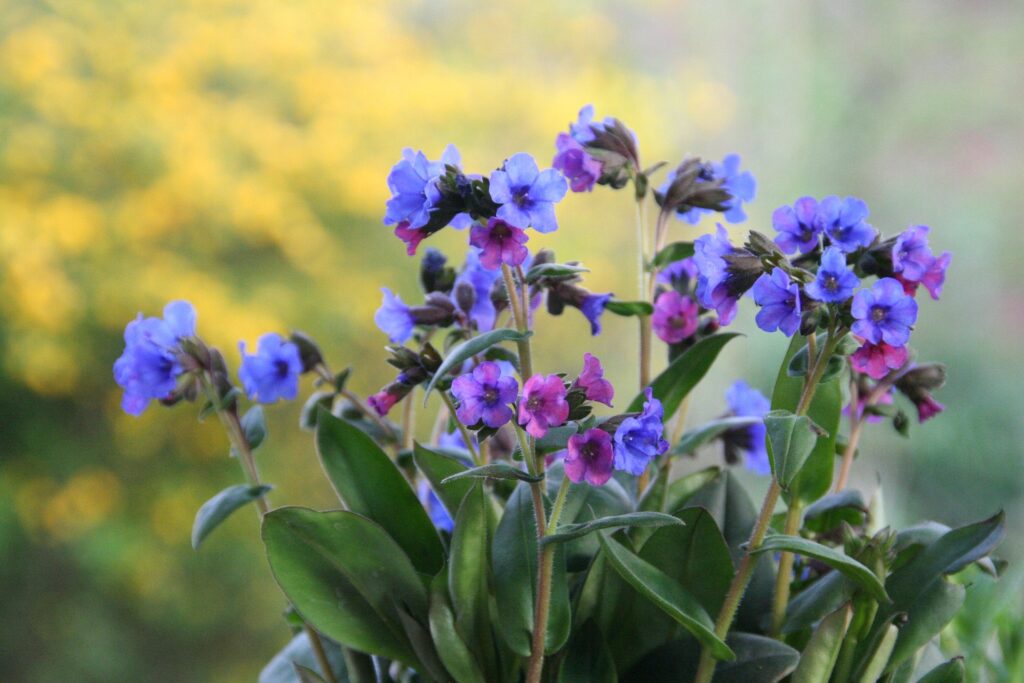
If you are on the hunt for a flower that blooms early and offers stunning blue petals, then Lungwort is a top pick – you can enjoy this as the tendrils of winter start to retreat, and for several months into spring and summer. Lungwort flowers like shaded areas, and soil with plenty of moisture – this makes them popular in woodlands and glades.
RELATED: 18 Beautiful True Blue Flowers (Including Pictures)
4. Siberian Squill
Botanical name: Scilla sibirica
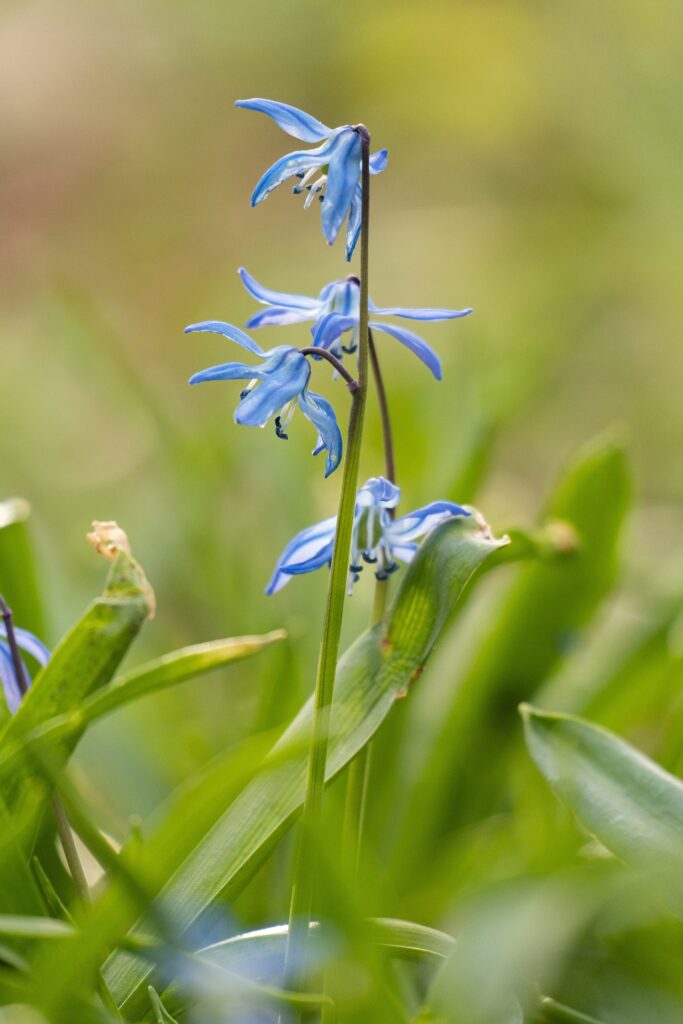
As the name suggests, these are native to the cold plains of Siberia, and offer gorgeous blue blossoms to totally transform your garden into a sea of aqua. Just keep your soil well-drained, and ensure that your flowers have plenty of sun, and you can enjoy blooms through early spring.
5. Columbine
Botanical name: Aquilegia
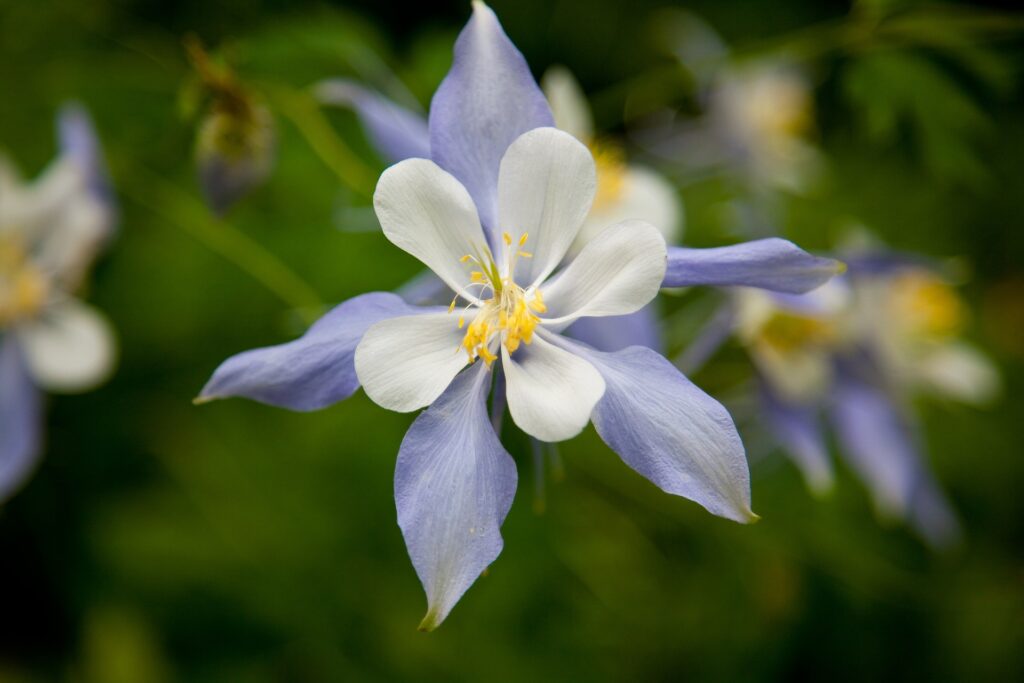
The stunning Columbine flower displays its most stunning blue blooms in the springtime, and these fade to a shade of maroon as the seasons turn. Shaped like bells, these are a firm favorite of hummingbirds, and will help to bring your garden to life. Where possible, these flowers prefer mild climates, so make sure that they are well insulated.
6. Flax
Botanical name: Linum usitatissimum
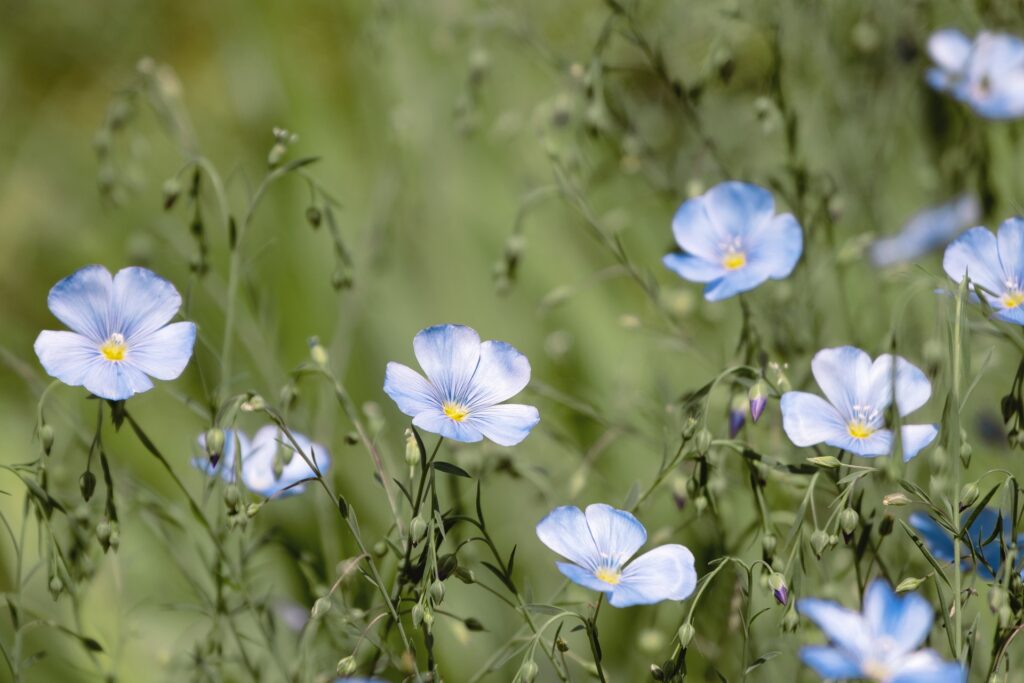
Flax not only offers you stunning blue blooms, but it is also super useful, and integral to the production of both linseed oil and linen! Flax likes well-drained soil, and plenty of full, direct sunlight, and is very easy to grow from seed.
7. Lobelia
Botanical name: Lobelia
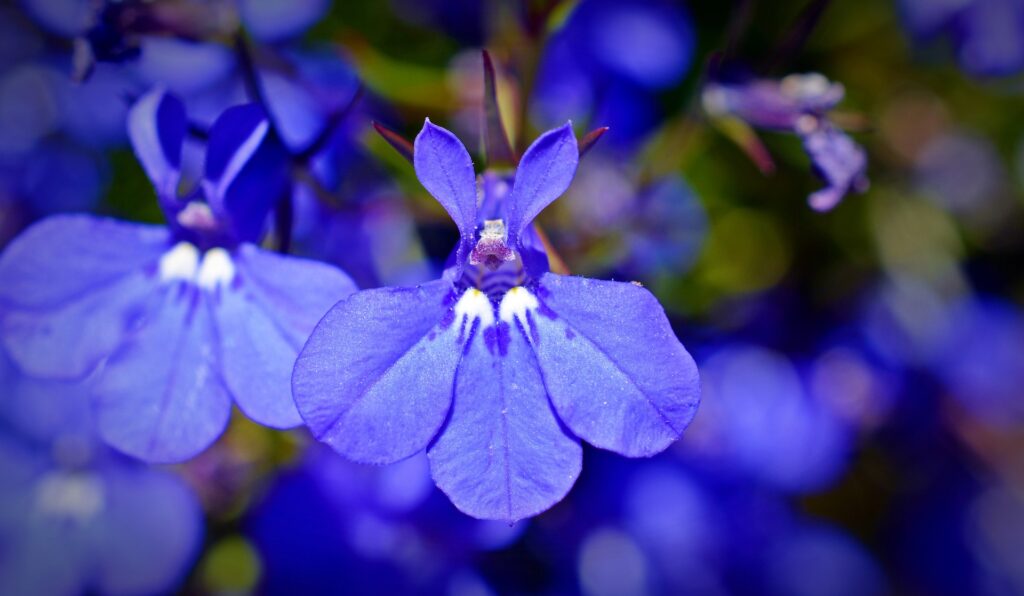
Technically a herb, lobelia is a stunning blue bloom that will be seen in the summertime, and that lasts right up until the first frost – ideal if you are looking to add a touch of color to your garden even when the weather starts to turn. While deep violet-blues are the most common shades, you can also enjoy the flower in brighter aqua hues, and these can add something unique to your space. This is a plant that is easygoing, and is generally happy to grow in almost any location.
8. Sweet Pea
Botanical name: Lathyrus odoratus
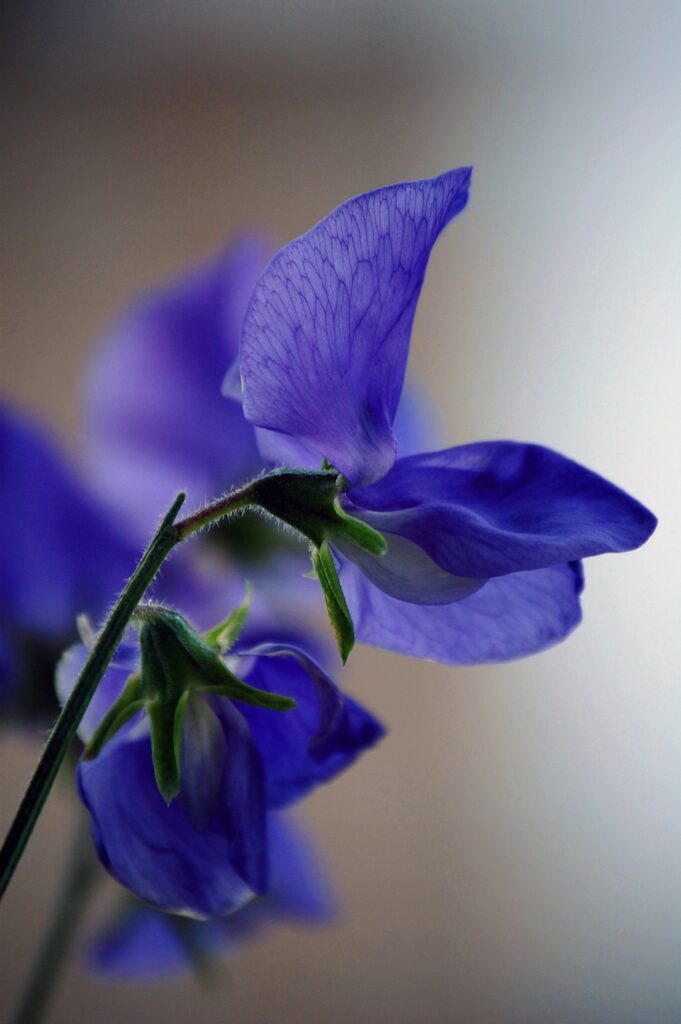
Sweet Peas are well known for their beauty and their sweet, fragile fragrance – a common ingredient in many popular perfumes, lotions and scents.
While Sweet Pea flowers can come in a rich array of shades, the bright, vibrant aqua blue varieties are truly breathtaking, and ideal for something a little different.
These gorgeous flowers can be tricky to grow; they need full sun, well-drained soil and are slow to germinate, but once established, they pride themselves on being tough.
9. Veronica
Botanical name: Veronica
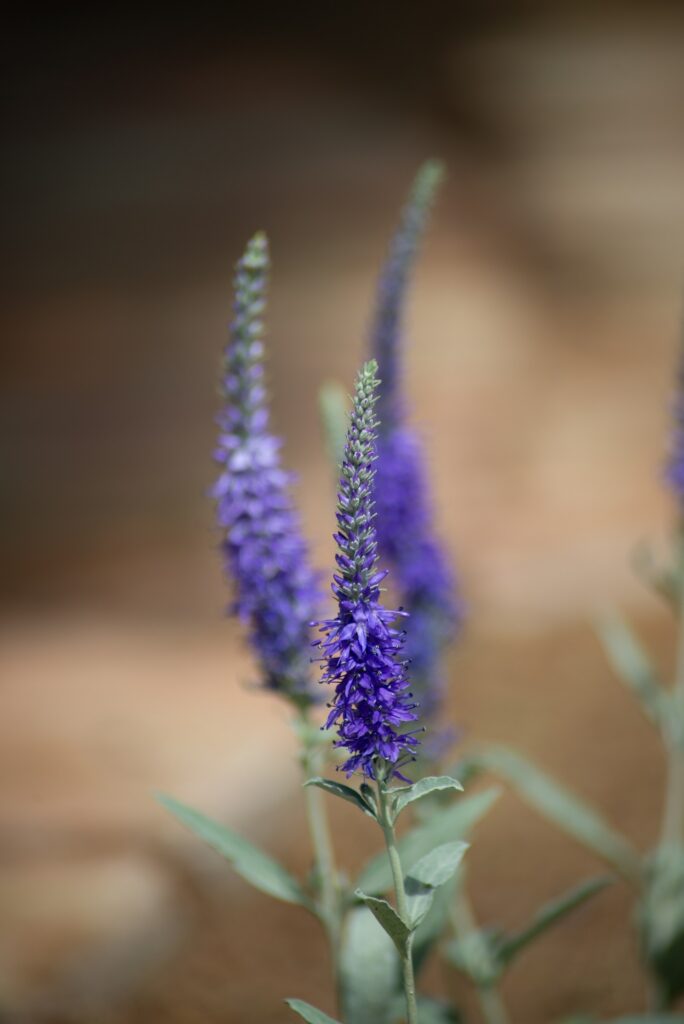
A popular perennial, Veronica flowers can reach up to three feet in height, and are recognizable thanks to their long spikes of small, aqua petals. You can enjoy their beauty from the spring right up to the fall, and are easy to grow. They are also very appealing to both hummingbirds and butterflies, and so ideal for creating your own wildlife oasis.
10. Glory-of-the-snow
Botanical name: Chionodoxa
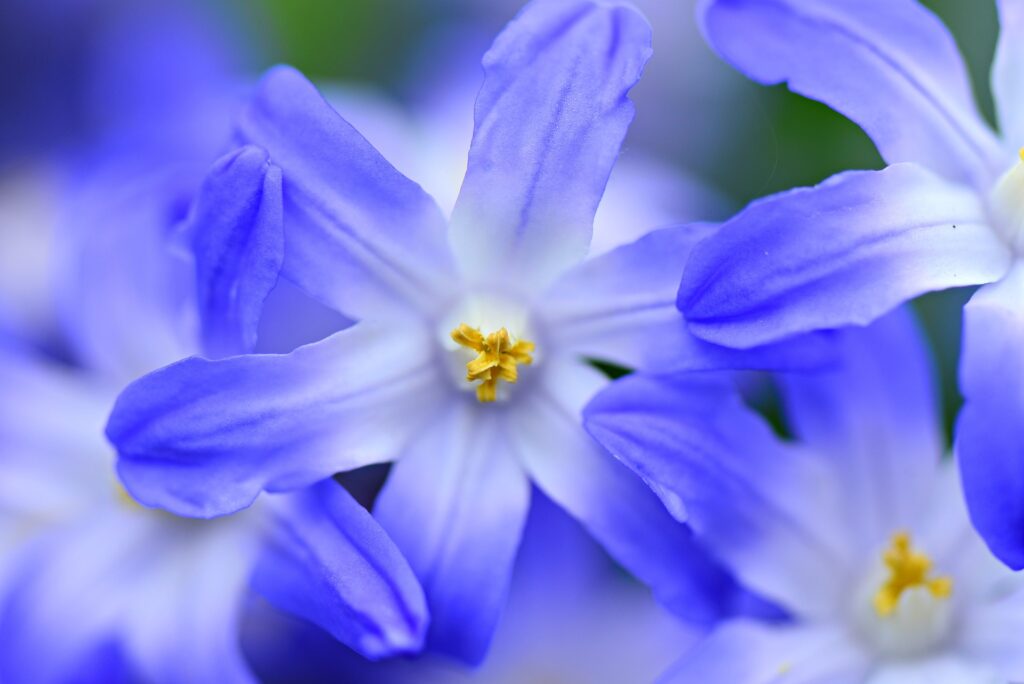
For a stunning flower that brings color to your garden during the drearier winter months, you cannot make a better choice than this stunning Glory-of-the-snow. Plant these in the fall to enjoy blooms all through the winter, and make sure that they get full sun and well-drained soil.
11. Poormans Weatherglass
Botanical name: Anagallis arvensis
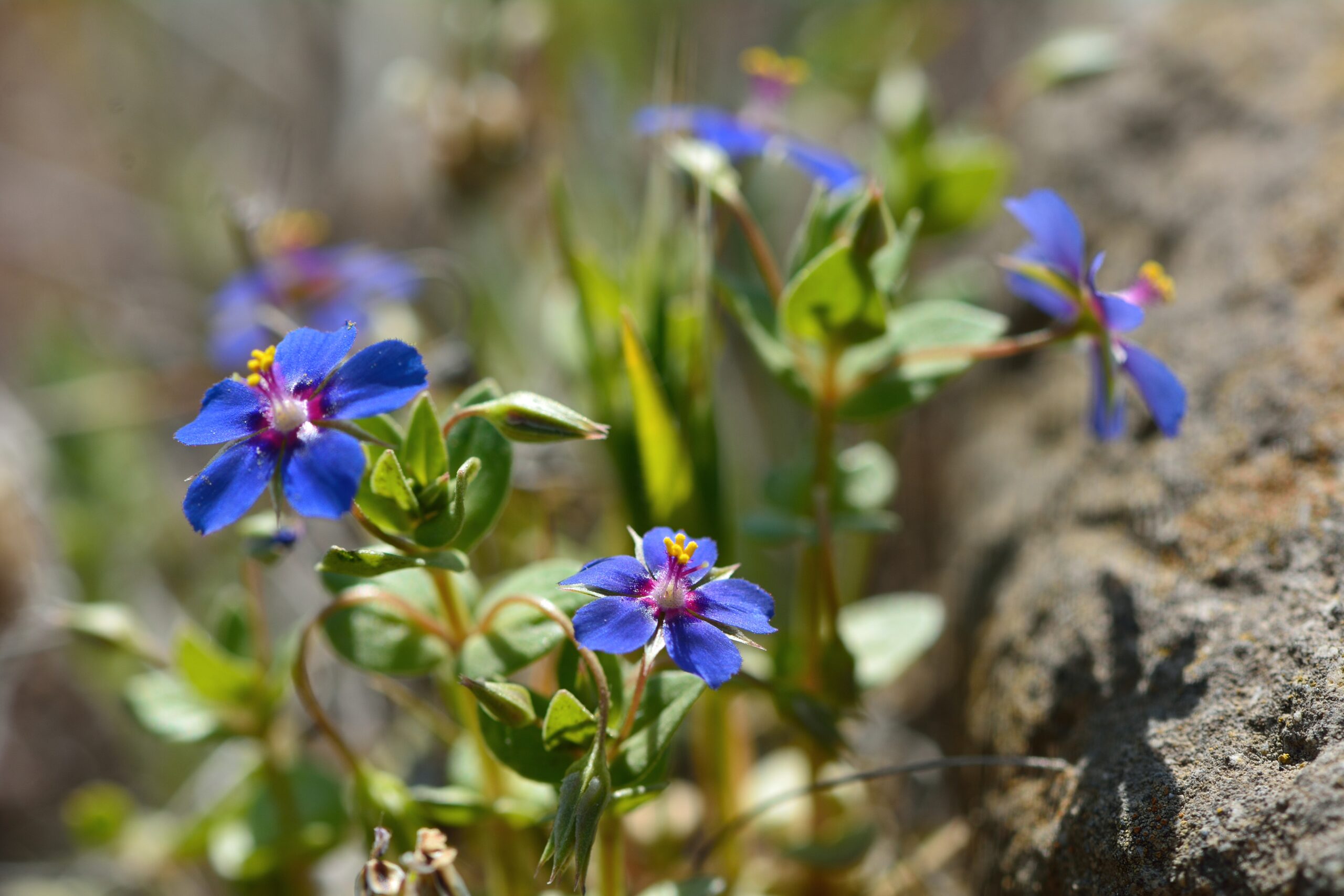
This plant not only looks great, but it is also said to have the ability to predict the weather – the aqua petals will open on sunny, bright days, and then close up when the rain is approaching, or the sky becomes more overcast.
Use well-drained soil, and ensure that your plants get plenty of sun. Once settled, this is a fast growing flower.
12. Birdbill Dayflower
Botanical name: Commelina dianthifolia
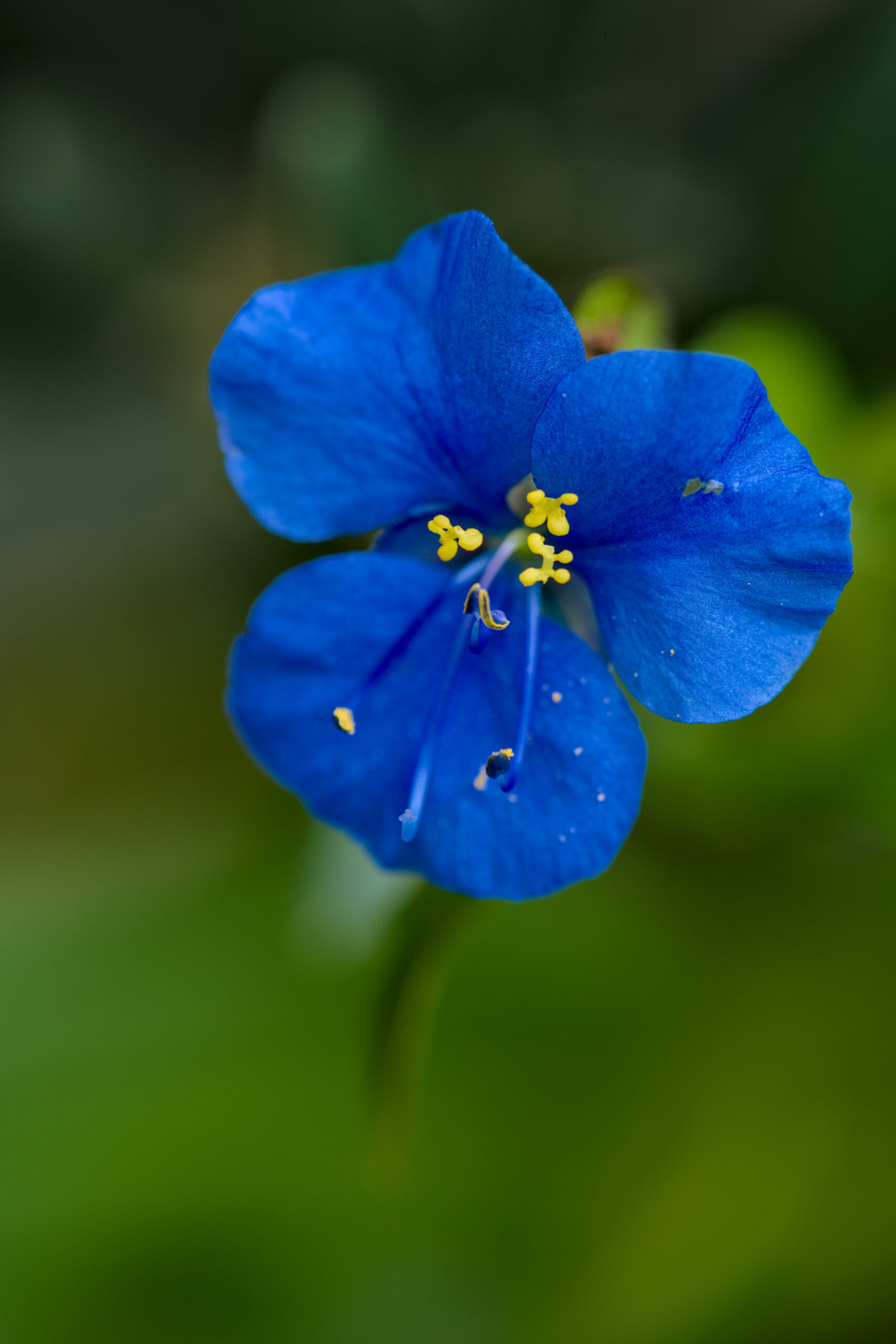
With intense blue blooms emerging one by one, it is a real treat to see this stunning flora spring to life. In total, you can expect three blue petals, surrounding a yellow stamen, and the true beauty of the bloom takes a little while to emerge – but it is well worth the wait.
Each bloom will last for just one day, so make sure you are keeping a close eye on your flower.
13. Mountain Larkspur
Botanical name: Delphinium scaposum
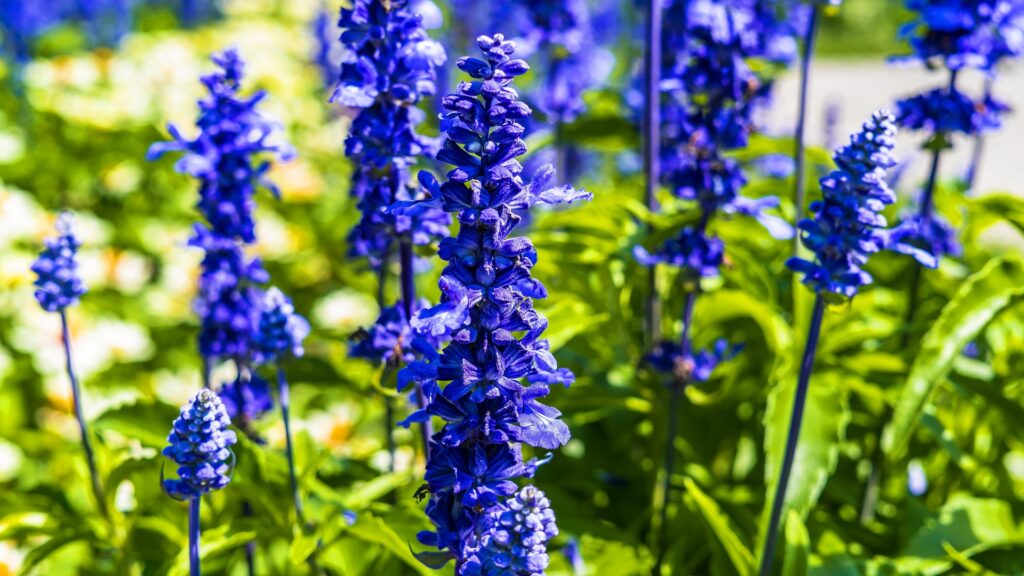
Mountain Larkspur is a brilliant combination of beauty and danger; while the stunning aqua flowers look amazing when clustered together on the tall stalk, this is a plant that needs to be handled with a great deal of care, as all parts are very poisonous.
If you are sharing your garden or outside space with pets, children or anyone who may be tempted to grab the blooms, this is best avoided, and naturally grows in deserts and rocky hillsides, well away from people.
14. Desert Bluebells
Botanical name: Phacelia campanularia
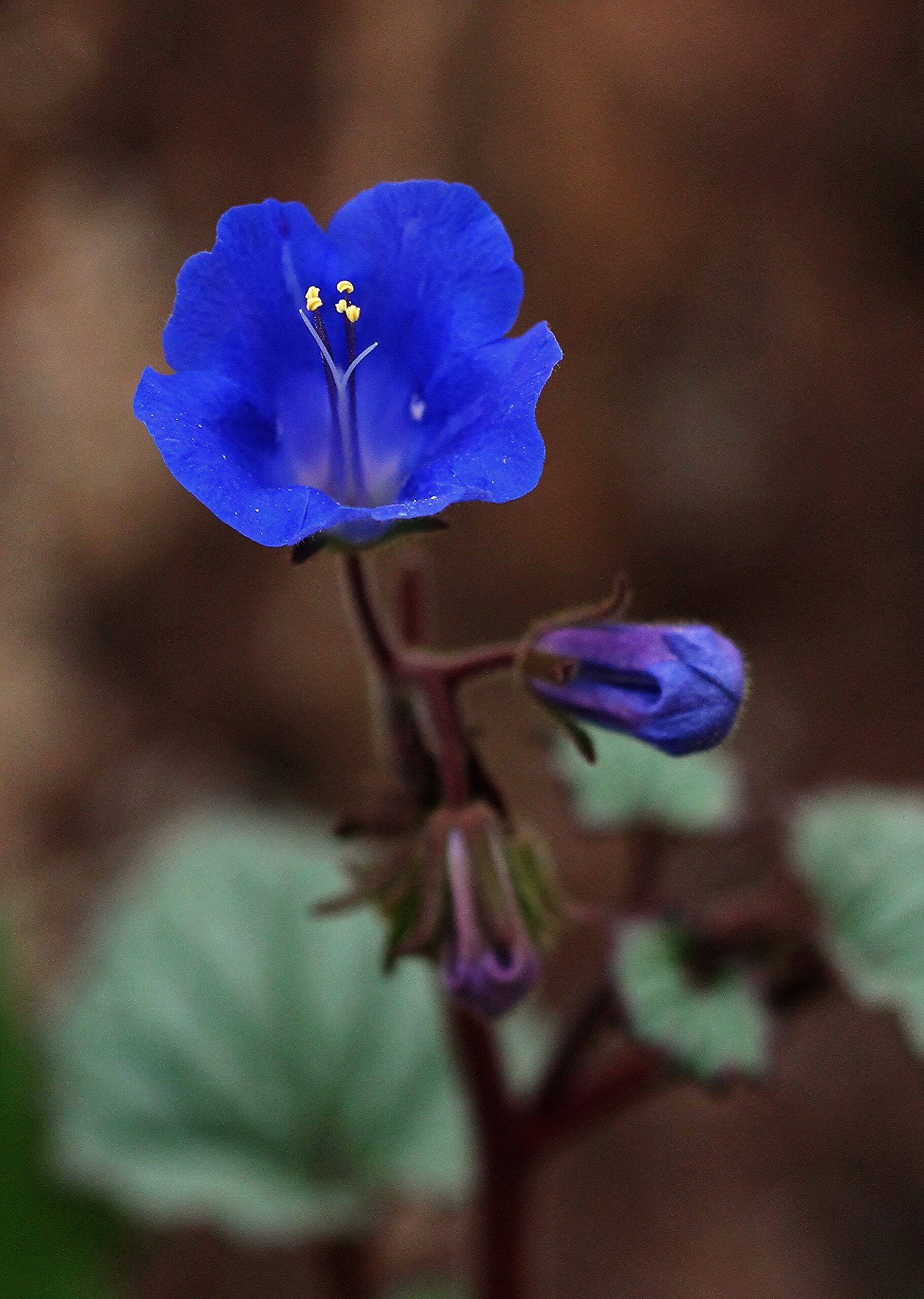
As the name suggests, these stunning blue flowers grow best in well-drained soil, rich, direct sunlight, anf in sandy, gravelly areas that closely resemble their desert origins. They have the bonus of being resistant to drought, and the blooms range from a rich violet right down to a vibrant blue.
15. Stiff Blue-eyed Grass
Botanical name: Sisyrinchium demissum
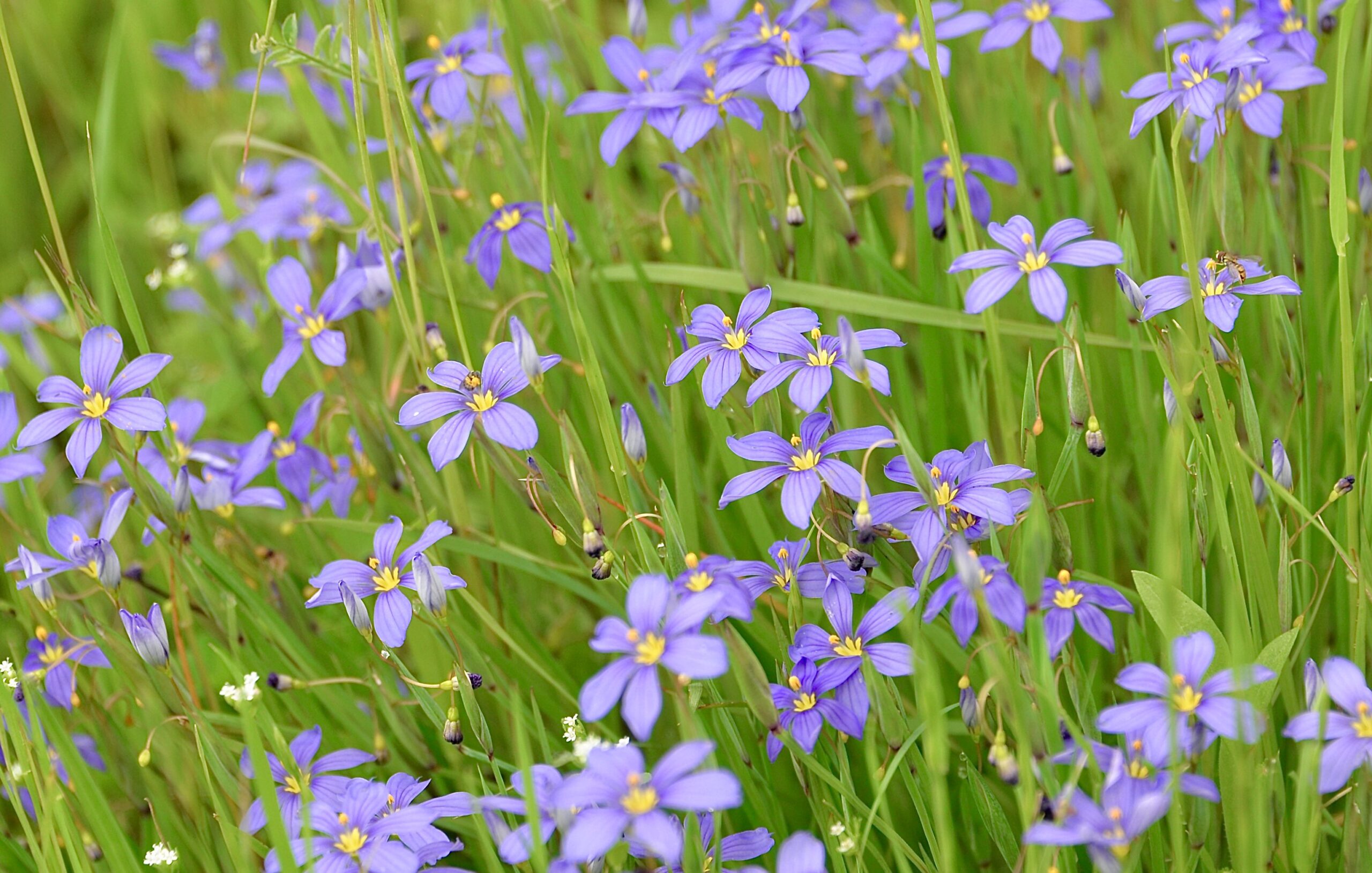
Despite what the name may lead you to think, this is not a grass, but a member of the Iris family – and one that is far easier to grow and manage than some of its relatives. Full sun is the optimum option, so take this into account when planting and make sure that you pick a perfect spot- almost any soil will be suitable.
As an added bonus, this flower is super appealing to wild birds, so you can bring the natural world right into the comfort and convenience of your own back garden.
16. Scabiosa
Botanical name: Scabiosa
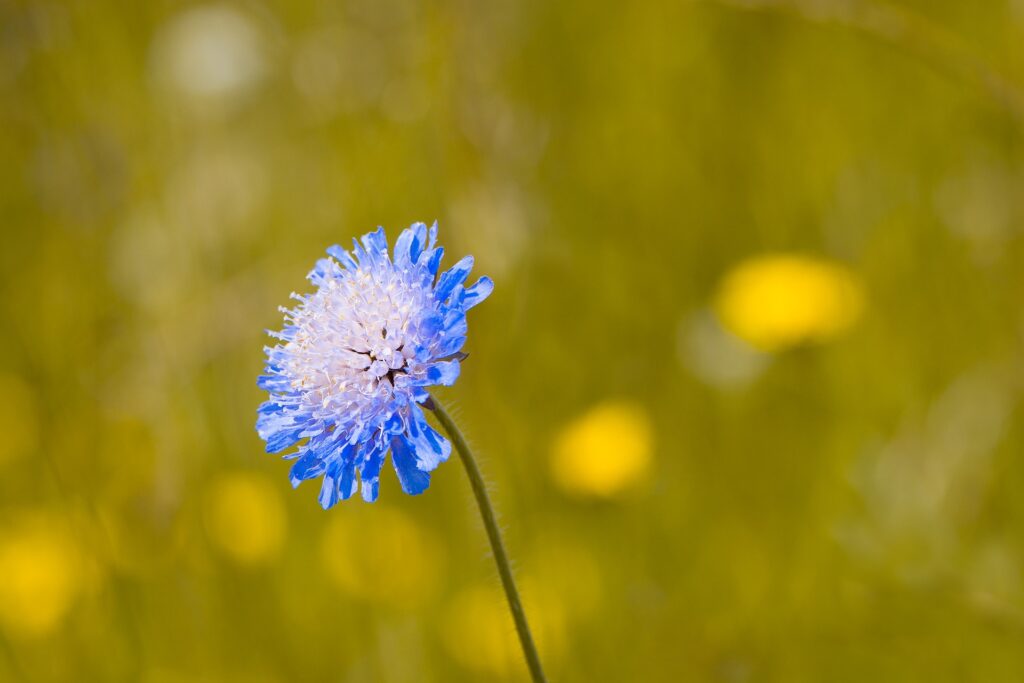
Sometimes referred to as “pincushion flowers”, the Scabiosa is an ideal option if you want something a little more unique. The plant gets its name from the center of the flower, which resembles a pincushion, and which is surrounded by an outer layer of bright blue petals.
You can expect stunning blooms in the summer – just remember to keep the plant in full sunlight. And remove any withering blooms as you see them to keep your plant healthy.
Final Thoughts
Choosing the right flowers is about more than simply fitting the perfect color palette or aesthetic – doing your research and ensuring that you have the right flowers for your space gives them the best chance of survival, and means that your yard will be a wonderland of life, health and bright, vibrant aqua shades.
This is why it is so important to make sure that you do your own research, and have a great understanding of the layout and make up of your garden. This plays the largest role in the plants you choose.
When it comes to stunning aqua flowers, our list is not exhaustive. We could never include every single bright blue shade in a single list! This is good news for you – it means that there is still plenty to learn, explore and discover; a horticulturalist’s journey is never over!




